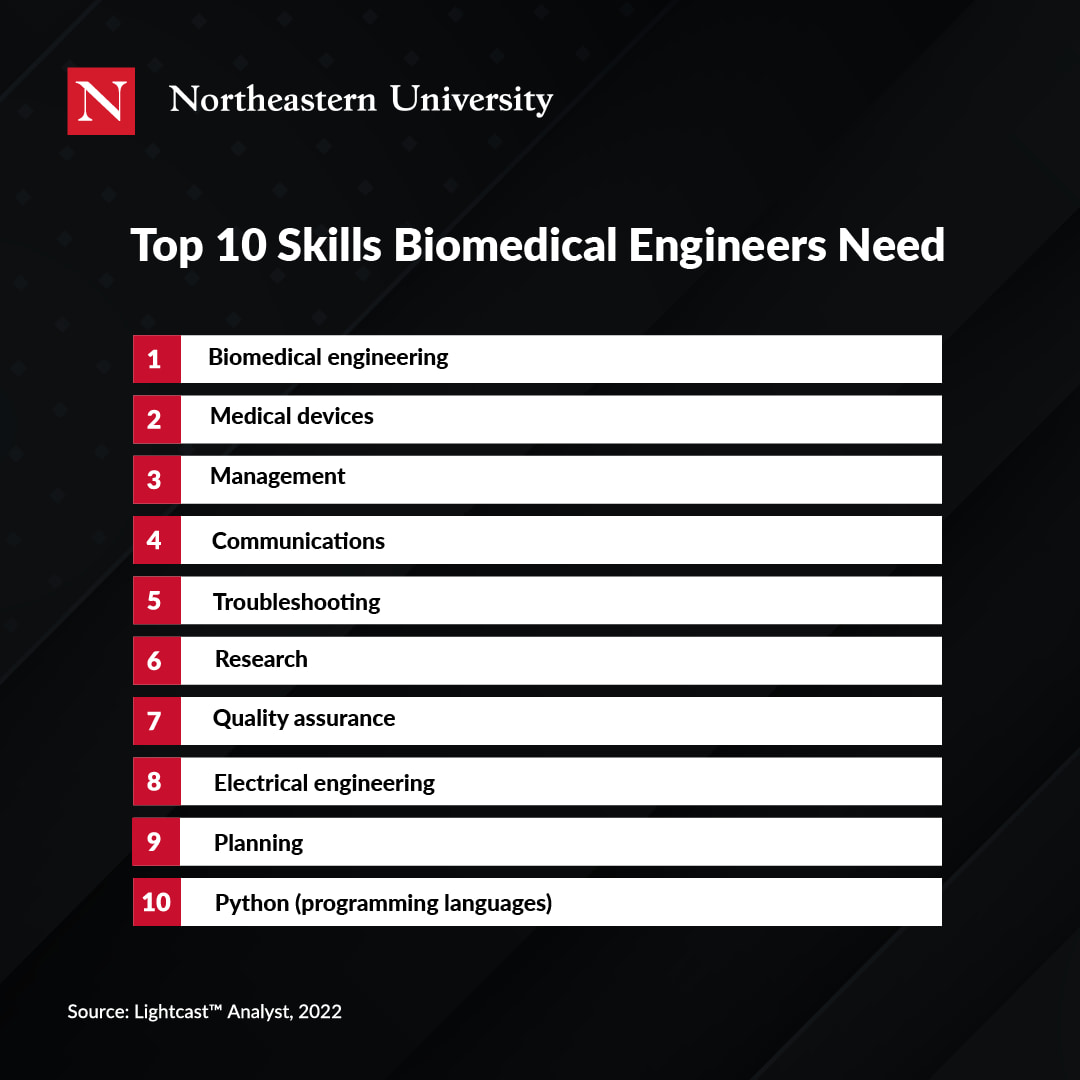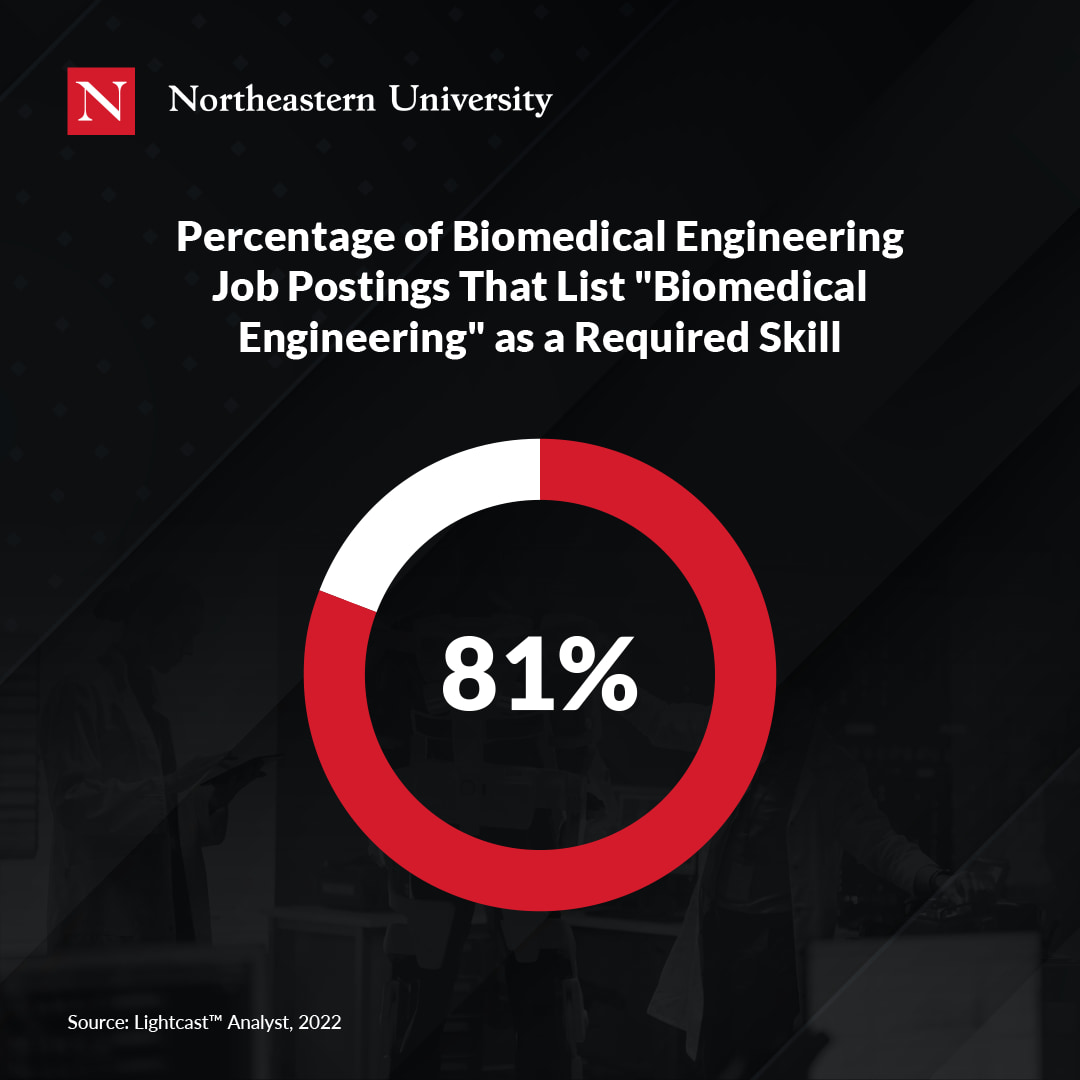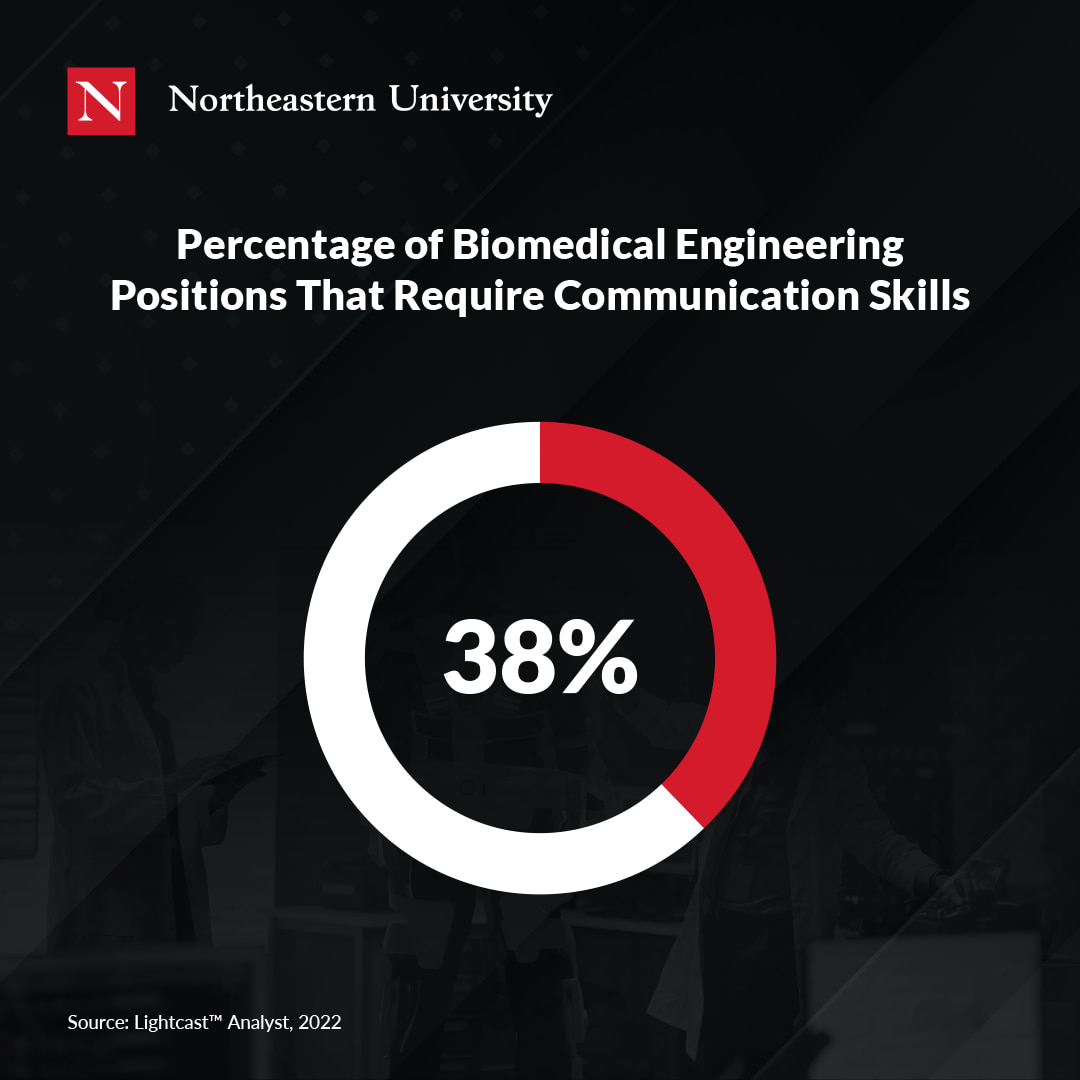While industries such as healthcare and engineering date back hundreds of years, biomedical engineering is still relatively new. Since its inception during the second half of the twentieth century, this field has been responsible for some of the most ground-breaking medical technologies and devices, such as dialysis, artificial heart valves, and pacemakers.
If you’re a current or recent graduate of a biotechnology program looking to combine a love of medicine and engineering, here’s a closer look at what biomedical engineering is, the top skills required for positions in the field, and how to obtain these qualifications.
What Is Biomedical Engineering?
Combining biology expertise with engineering knowledge, biomedical engineers work to design and implement solutions to common problems in healthcare. They design products such as biomedical equipment, biomedical devices, and medical software and hardware, such as prostheses, artificial organs, and diagnostic/imaging machines.
Biomedical engineering professionals work on a wide variety of projects and initiatives to deliver real-world solutions to improve others’ lives. With high earning potential and steady growth, these in-demand careers within the biotechnology community afford talented individuals the opportunity to apply their technical and professional skills in a rewarding, meaningful way.
Top 10 Skills Required for Biomedical Engineering
While skills like scientific research and experimentation are guaranteed requirements within the biomedical engineering field, qualified and well-rounded candidates will need to ensure they’re bringing more to the table.
Here are the top 10 skills biomedical engineering professionals need when applying for jobs.

1. Biomedical Engineering
Strong biomedical skills and experience are perhaps the most important competency when applying for a position in biomedical engineering. In fact, 81 percent of job postings include this skill as a requirement for biomedical engineers. Therefore, candidates should consider strengthening their background in developing or maintaining technologies and best practices used in healthcare and public health.

2. Medical Devices
The design and development of medical devices (e.g., prosthetics, artificial organs, and diagnostic imaging machines) is a common focus of biomedical engineers; therefore, a demonstrable proficiency is crucial in this area. While under half of job postings require this skill, it’s still an in-demand competency for those interested in working with medical equipment and devices. This means applicants should have a record of maintaining, updating, or installing hospital and medical equipment to show employers they are qualified for these specialized roles.
3. Management
Management skills are important for most individuals applying for positions in the biomedical engineering field. Even if prospective biomedical engineers aren’t interested in specifically managerial roles, it’s still worth building up this particular skill. Since biomedical engineers work in a relatively new space within healthcare and engineering, they are often identified as leaders within their field.
4. Communications
Effective and efficient communication is an essential skill within any industry—the biotechnological world is no exception. Nearly 38 percent of biomedical engineer job postings expect biomedical engineers to be effective communicators. This aligns with the need for biomedical engineering professionals needing to effectively talk through challenges with clients and articulating new ideas to colleagues.

5. Troubleshooting (Problem Solving)
At their very core, biomedical engineers are problem solvers. Whether they are figuring out how to produce or improve prosthetic organs or researching stem cell therapies to tackle life-threatening diseases, biomedical engineers work hard to remedy problems and overcome roadblocks experienced by humans every day. According to our analysis of job postings data, this skill is included in nearly one-third of biomedical engineer job postings, so it’s a competency worth developing to gain employment in this field.
6. Research
Research plays an integral role in most biomedical engineering roles. Biomedical engineers are expected to use their natural curiosity to work on new and emerging ideas to solve health problems around the globe. As a result, biomedical engineers are often at the forefront of new technologies. Individuals who are seriously interested in this industry should consider gaining expertise in research and comprehensive record keeping to ensure clear reporting and accurate data.
7. Quality Assurance
Biomedical engineers, especially those in the industrial sectors, focus heavily on the quality of the services or products they’re responsible for. Even though only one-fourth of biomedical engineering job postings require this skill, it’s still a crucial part of most biomedical engineering positions. Much of their work is critical to ensuring the health and safety of individuals worldwide, so it’s important for candidates to have some experience in this area.
8. Electrical Engineering
Candidates who have a background in designing, developing, or testing electrical equipment are often a step ahead of the competition when it comes to biomedical engineering positions. With the biotechnological world tackling everything from medical imaging to medicine delivery technology to biomedical signal processing, established electrical engineering skills stand out to employers. Only 23 percent of job postings include this as a requirement, but this is a competency that can easily give candidates a leg up on the competition.
9. Planning
Planning and managing projects and processes are essential skills in biomedical engineering. Biomedical engineers plan, develop, and execute complex and critical processes from start to finish. For this reason, qualified candidates will need to demonstrate a proficiency with planning to prospective employers. Only 21 percent of biomedical engineering job postings require this skill, but many times this skill is included under “management” since these two competencies often go hand in hand.
10. Python (Programming Language)
Python is one of the most important and impactful programming languages in the world. With applications in nearly every industry, it allows users to work together across sectors in efficient and productive ways. With its omnipresence in the data technology world, a demonstrated proficiency in Python is an excellent skill to acquire for biomedical engineering. Individuals interested in the technological side of biomedical engineering need this skill to remain competitive in today’s evolving technology job market.
How to Obtain Biomedical Engineering Skills
How does someone obtain the skills necessary to demonstrate excellent candidacy with biomedical engineering employers? According to Jared Auclair, associate dean of Professional Program and Graduate Affairs at Northeastern University’s College of Science, those necessary skills are acquired by “doing.”
“I think the best way to acquire any skill, frankly, is through practice. Whether it’s a professional skill like communication, or a technical skill like quality control, hands-on practice is the most effective way to gain experience,” he explains.

Earning an experiential degree is a great way to gain hands-on experience and practical skills necessary to become a well-rounded, qualified biomedical professional. Experiential programs offer students opportunities to participate in learning opportunities like labs, co-ops, projects, and residencies, giving them the demonstrable experience and advanced skills potential employers look for.
Ready to Skill Up?
Whether you’re looking for a career change or have had a long-standing passion for medical engineering innovations, earning a master’s degree in biotechnology can help you achieve your career aspirations of becoming a biomedical engineer.
The MS in Biotechnology program at Northeastern prepares students to succeed in the world of biotechnology and provides them with the practical experience that gives them an edge when applying for jobs. With a hands-on, real-world experiential education on your resumé, you’ll be ready and equipped to hit the ground running in government, clinical, or industrial settings.
Want to learn more about what Northeastern has to offer? Check our biotechnology program page to see what program works best for you.






Related Articles
11 Data Science Careers Shaping Our Future
How Data Science is Disrupting Supply Chain Management
What Does a Data Scientist Do?